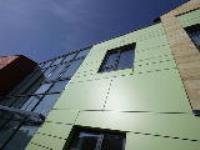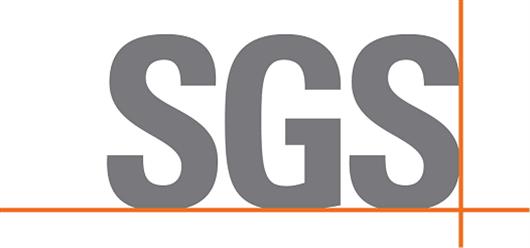 Add My Company
Add My Company
Sign In

After being in business for two years, Leeds-based architects firm, QAD Architects, made the decision to become ISO 9001 and ISO 14001 certified. That was in 2007, and the company recently successfully transitioned to both ISO 9001:2015 and ISO 14001:2015. Founding director of QAD Architects, Paul Wainwright, believes this dedication to quality and the environment has stood his business in good stead, and encourages others in his sector to join him.
QAD Architects is very well established within the residential, health, educational and commercial sectors. Its multi-skilled technical team utilises in-house 3D visualisation and Building Information Modelling in its work, and is as creative as it is commercial.
Built on a company mantra of the ‘Four Cs’ – Creating, Communication, Constructing and Client expectation – in 2007 QAD Architects added a fifth to their list: Certification.
Sector trailblazers
After a successful start to its business, Paul Wainwright explains that the company felt confident it was achieving all criteria in both the ISO 9001 and 14001 standards. It was also not an industry requirement at the time, so why embark on the process?
“While we believed we ticked all the boxes in the standards’ criteria,” explains Paul, “we felt that it was an important marker of quality to formalise the whole process – for our clients.”
Being ahead of the game was also important to the team at QAD Architects: “When we first became registered for the ISO certification it wasn’t the norm for our industry,” continues Paul. “It is increasingly common now however, and the Royal Institute of British Architects (RIBA) has instigated a requirement for chartered practices to have a quality management system (QMS) in place.
“At the moment the QMS doesn’t need to be externally audited, nor is there a requirement for the ISO 14001 certification – however I believe this will become mandatory in the next few years. When that happens, I’ll be glad that we were on the front foot.”
A structured approach = success
Fast-forward nine years to 2016, and QAD Architects was planning the smooth transition of its ISO 9001 certification to the updated and improved 2015 version.
QAD Architects engaged with leading certification body, SGS United Kingdom Ltd, to discuss its requirements and to kick-start the process. Working in partnership with SGS at the outset meant the QAD team was able to put an achievable plan in place that ensured the company avoided any typical pitfalls or mistakes that businesses can encounter when tackling the certification process alone.
“Approaching the process positively and in bite-size chunks made it straightforward to manage,” explains Paul. “Immediately after the surveillance audit we had in 2015, we put together a year-long programme to work towards achieving the transition to the updated ISO 9001 standard.
“Despite having a good system in place, there are always improvements that can be made – which of course is the premise behind the standards – and continuous improvement is vital for a company to develop.”
The new ISO 9001:2015 standard has been revised to integrate seamlessly with other ISO standards. “This has been transformational for QAD Architects in streamlining the system and integrating it easily into the business,” says Paul.
QAD Architects also achieved its transition to the new ISO 14001:2015 standard at the same time. The deadline for businesses to transition their existing ISO 9001 and 140001 certifications to the 2015 version of both standards is September 2018; any businesses that have not transitioned by then will no longer be certificated.
Benefit from expert advice
Paul’s advice to companies considering certification, or who need to transition their ISO 9001 and ISO 14001 certification, is to engage with a certification body from the outset. “There can be a lot of wasted time if you decide to go it alone – the amount of literature available is plentiful but can be a bit overwhelming.”
“Speaking directly with the organisation that will certify you will help you prioritise activity, and, like SGS, they should have processes in place to help you get to where you need to be. It makes what could be a daunting process easy to manage and rewarding to achieve.”
A final word of advice from Paul: “When looking to achieve these certifications, an organisation needs to make an intellectual investment as well as a financial one – it must come from the top down. At QAD we had cooperation at every level and that was key to our success.”
For more information on Certification transition a no-brainer for trailblazing architects who put quality first talk to SGS United Kingdom Ltd
Enquire Now
More News
List your company on FindTheNeedle.
